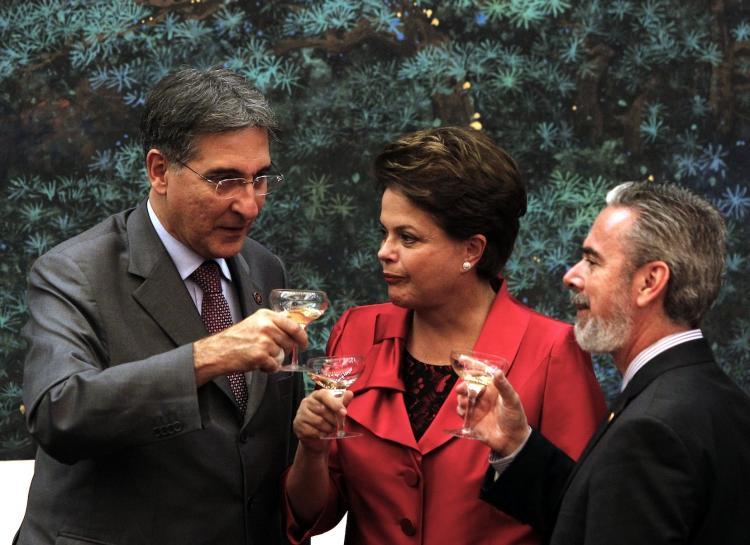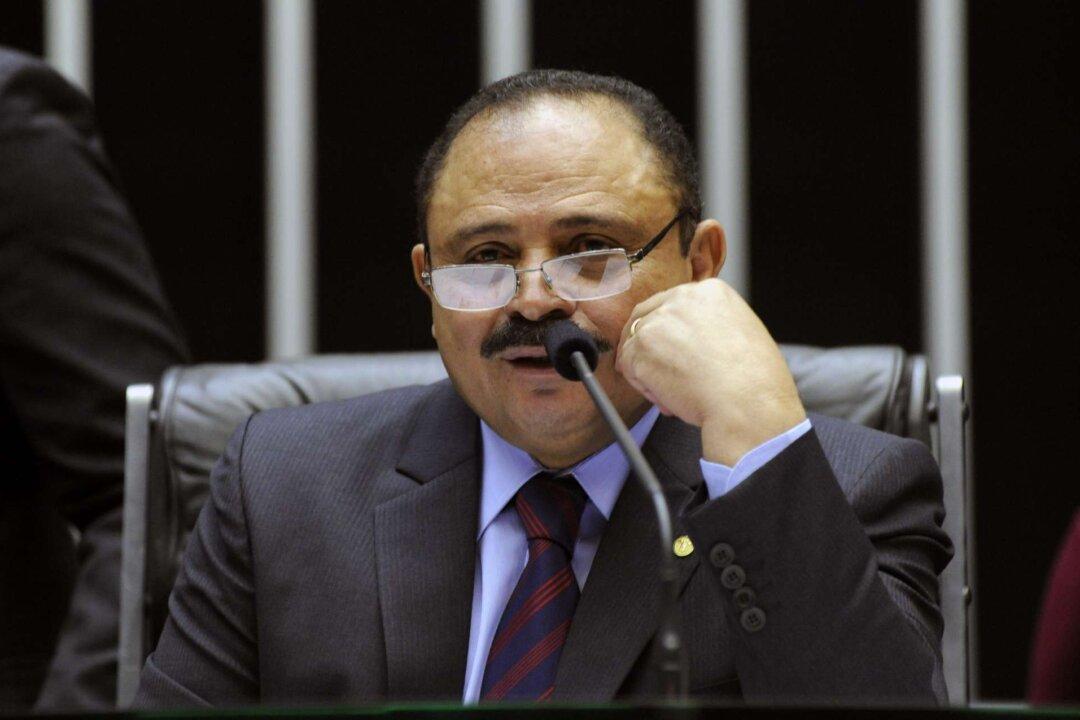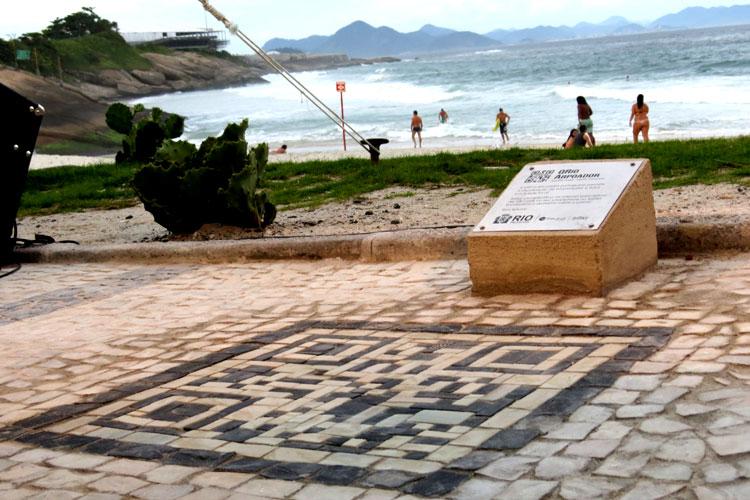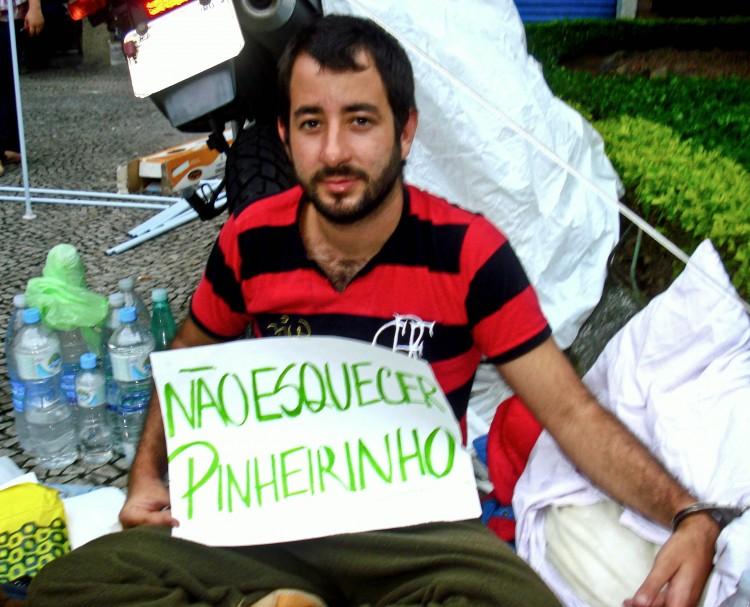The morning after Brazilian President Dilma Rousseff returned from China, she told the radio program, “Breakfast with the President,” that billions of dollars in trade deals were signed with China, generating thousands of future jobs for Brazilians.
It was Rousseff’s first official visit to Asia, and her second overseas trip in 100 days in office. Although her long, six-day visit, covered a lot of ground, her primarily focus revolved around business partnerships and investments. When she came back, she was visibly happy, having a lot to show for her efforts.
Included in the 20 or so trade agreements signed during the trip, was a $12 billion investment in Brazil, by Foxconn, the manufacturer of iPad, and a combined $600 million commitment from telecommunications giants, Hawuei and ZTE. She also closed a deal to expand Brazil-based Embraer’s existing presence in China. Embraer is one of the largest aircraft manufacturers in the world. The deal involves the manufacture of 35 Legacy jets, an operation worth $1.4 billion. In turn, Brazil promised to give China its long, sought-after, market-economy status recognition.
Rousseff and Chinese counterpart, Hu Jintao, also signed agreements in the education, sports, science, technology, and energy fields. Both pledged to expand and diversify investments through company partnerships, especially in the high-tech and automotive sectors, as well as the logistics sectors of mining and energy.
One of the main challenges the Brazil leader faces, is how to shift the trade imbalance between the two countries—something that is unlikely to be accomplished in one trade mission.
China is Brazil’s largest trade partner, and the biggest destination for Brazilian exports, mainly materials. China in turn, exports mass amounts of cheap manufactured goods to Brazil.
“No country can aspire to either isolation nor ensure its prosperity at the expense of others,” Rousseff said at the joint press conference, after her first meeting with Hu.
“The Chinese market is open. China invites Brazil to export more products to our country, especially products with high-added value. We hope that the visit of President Rousseff could take the economic and commercial relations existing between China and Brazil to a new level,” said Hong Lei, spokesperson for the Chinese Ministry of Foreign Affairs.
Halfway into her visit, on April 14, Rousseff joined her BRICS partners—China, Russia, India, and South Africa—for a summit in Sanya, on a tropical island in southern China. The group originally formed to push for international political and financial reforms, as a counter balance to powerful U.S. and EU dominated institutions, like the United Nations.
BRICS summit members all agreed that reform is needed so that the U.N. can “deal with current global challenges more successfully.” Libya, of course, is a prime example of one of those challenges.
U.N. reform, particularly the expansion of the Security Council to include countries like Brazil, India, and South Africa (Russia and China are already members), is a key issue for Brazil. At a joint news conference, held after the meeting, Rousseff said, “The reform of the U.N. and its Security Council are essential, because is not possible to begin the second half of the 21st century, linked to an institutional arrangement set up after the war.”
Ending her official visit on April 15, accompanied by 300 Brazilian businessmen, Rousseff participated in the Economic Forum of Boao for Asia—Asia’s version of the World Economic Forum. The president said that Brazil’s experience with programs designed to fight poverty, called for controlling inflation, without jeopardizing economic growth. She said that her government is committed to solving infrastructure problems that hamper investment.
Rousseff also made it clear to China that Brazil has “democratic rule of law, political stability, commitment to human rights and environmental sustainability, and a deep sense of self-esteem of our people.”
Unbalanced Growth
Bilateral trade between the two emerging giants, grew over 600 percent since 2004, rising from $9.1 billion to $56.3 billion. After passing the U.S., China is now the largest trading partner of Brazil.
According to Brazil’s Ministry of Development and Foreign Trade, 83.7 percent of Brazilian exports to China are raw materials, like soybeans and iron ore, while 97.5 percent of Brazil’s imports from China, are manufactured goods. In addition, nearly 90 percent of Chinese investments in Brazil are targeted towards the natural resource sectors. In an interview with NTD Television, almost 50 percent of Brazilian-based manufacturers say they have lost market share to China.
According to the Federation of Industries of the State of São Paulo, Brazilian industries reported losses of $15.2 billion, due to fierce competition from cheap Chinese products, the artificial devaluation of Chinese currency, and China’s free use of slave labor, reported O Globo, one of Brazil’s largest daily newspapers.
According to the National Confederation of Industry, 67 percent of Brazilian companies have been harmed in one way or another by cheap Chinese goods.
Marcelo Coutinho, professor of International Relations at the Federal University of Rio de Janeiro, says it is still too early to draw conclusions. “The achievements of President Rousseff’s trade trip to China are not negligible, but they don’t alter the situation of inequalities that currently marks relations between the two countries.”
U.N. Reform, Democracy, and Human Rights: Fragile Points
Diplomacy was the focus of the meeting, not human rights. “Human rights are one of the aspects of international politics that has become more valued by the Dilma government, but isn’t the only item on the agenda. The change in foreign policy toward human rights must be done in a gradual and cautious way,” said Coutinho.
In her election campaign, ex-guerrilla, Rousseff, said that people should never fail to stand against political arrests and censorship. On the other hand, she also stated that “business is business.”
However, now that Brazil seeks to increase trade relations with China, the Brazilian Ministry of Foreign Affairs said that broaching the subject of human rights with China, was “counter-productive.”
In fact, the issue of human rights was never addressed in the official statement, signed by representatives of both governments. The only mention by Rousseff about the subject, was made at a news conference in Boao, on Friday. She said, “All countries have human rights problems. We also have problems with this.”




